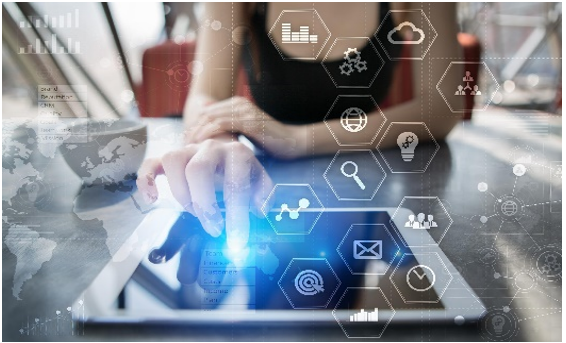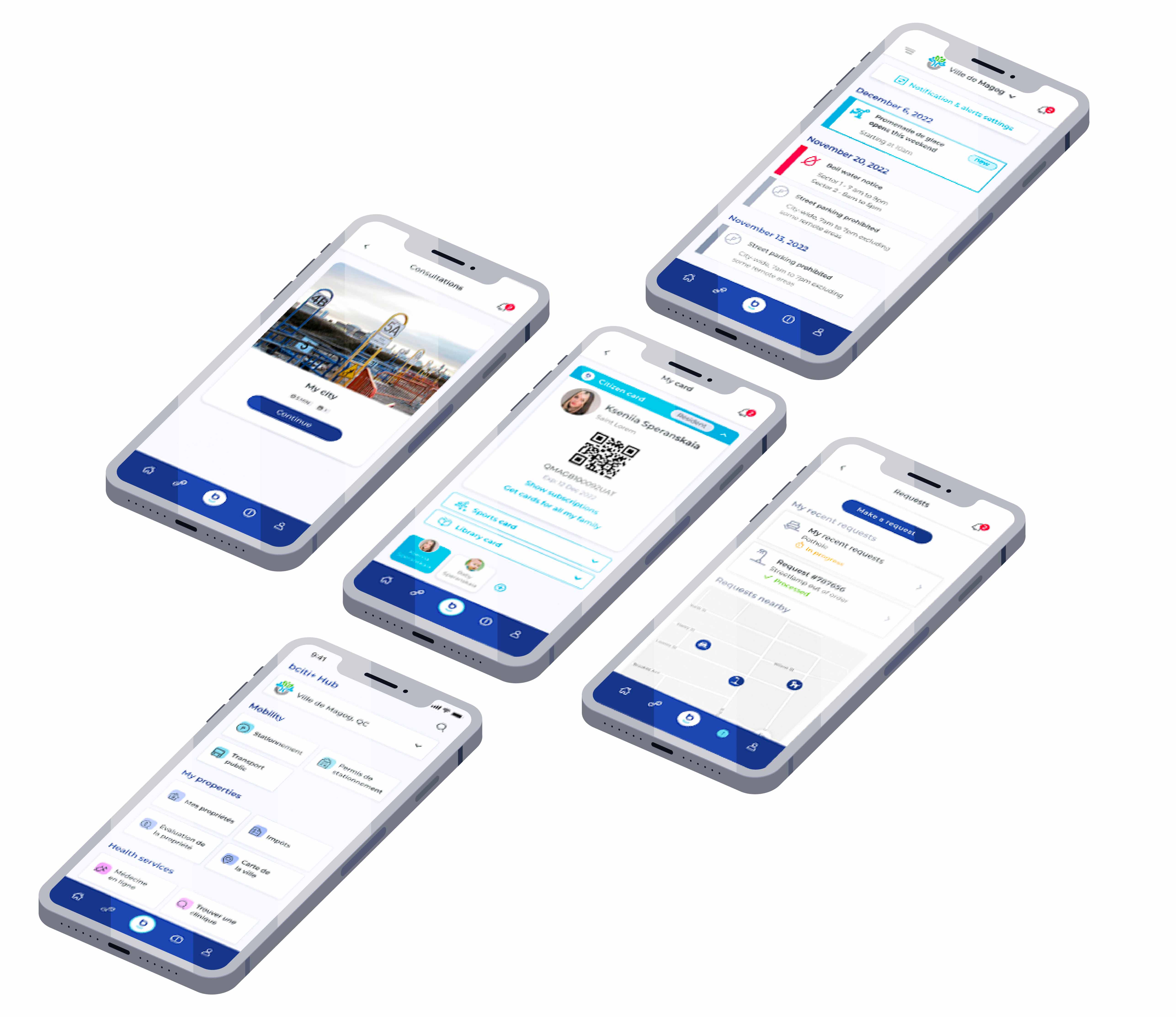6 Trends in Digital Transformation for 2021
Vivianne Gravel

Reinforcing bciti’s vision
December 16th, 2020
In recent months, digital technology has transformed whole segments of society more than we’ve seen over the past 10 years. This is precisely the reality that bciti is experiencing on the ground, as cities, communities and businesses are accelerating their digital shift.
With its smart city/community platform, bciti supports this digital shift by putting data in the hands of citizens and decision-makers alike.
According to Daniel Newman,[1] an expert in digital transformation, 10 major trends are taking shape for 2021. Six of these trends illustrate the relevance of bciti’s solutions.
- 5G will “finally” take off with the general public. In addition to providing faster bandwidth and more reliable mobile networks, the proliferation of 5G will accelerate technological advances in cities, factories and smart vehicles. 5G’s unprecedented level of connectivity will also have a major impact on the development and deployment of IoT (Internet of things) technologies. Working from home, digital collaboration, the increasing reliance on smartphones and a growing number of IoT sensors will get 5G off the ground. For bciti, this means automating water and air quality management and tracking snow removal activities in real time, among many other activities, thanks to connected “objects.” By applying artificial intelligence (AI) to data generated by the IoT, cities will be able to make more enlightened—and better—decisions.
- Customer Data Platforms (CDPs) will blow up. The increasingly large and fragmented amount of data (due to its many sources) makes accessing
 and managing data in real time complicated. Since its foundation, bciti has been developing and commercializing a Smart Community Data Platform (SCDP) that serves as a smart city’s central nervous system integrated into its citizen portal and administrative console. This data platform leverages synchronized Open-Source connectors to extract data and create AI models to help communities and citizens make more informed decisions. The SCDP is also designed to make the ethical management of data easier.
and managing data in real time complicated. Since its foundation, bciti has been developing and commercializing a Smart Community Data Platform (SCDP) that serves as a smart city’s central nervous system integrated into its citizen portal and administrative console. This data platform leverages synchronized Open-Source connectors to extract data and create AI models to help communities and citizens make more informed decisions. The SCDP is also designed to make the ethical management of data easier. - Cybersecurity, although shaken, will become increasingly important. This is a point that confirms bciti’s decision to work with the Université du Québec à Chicoutimi (UQAM) on “Smart Contracts” and blockchains, as well as the Université du Québec à Montréal (UQAM) and IVADO on ethical data management.
- AI will become more pervasive and accessible on an even greater scale. AI is part of our daily lives. Just think of the Netflix movie recommendations, voice assistants like Alexa, or the self-driving vehicles that are appearing on our roads. The large-scale use, management and even orchestration of AI for cities and communities will inevitably become integrated into a central nervous system like bciti, which interconnects citizens, businesses and administrators.
 E-commerce will disrupt industries. The e-commerce offering and development of customer loyalty will become critical to local economies. This is what the bciti ecoLocal module accomplishes, which will be launched officially in early 2021. Cities can help local businesses make this shift with the bciti platform to bring them closer to local consumers.
E-commerce will disrupt industries. The e-commerce offering and development of customer loyalty will become critical to local economies. This is what the bciti ecoLocal module accomplishes, which will be launched officially in early 2021. Cities can help local businesses make this shift with the bciti platform to bring them closer to local consumers.- Remote working will continue after the COVID-19 pandemic subsides. This goes for both organizations and cities. Administrators are responding remotely to citizens, creating pressure to digitize services which in turn creates increased demand for the bciti smart cities/communities platform and the bciti portal.
The priorities of organizations and communities of all sizes have shifted abruptly around the world. Technologies must be developed with citizens/users and data security at their core.
For more than five years, this is the vision that has been, and still is bciti and its partners’ driving force!
Smart together

About bciti
bciti brings residents closer to their communities. As the central nervous system connected to citizens, both the bciti smart city/community platform and the bciti+ portal allow for real-time dialogue, provide access to a multitude of urban services through a SINGLE application and promote buying local. By putting data in the hands of decision-makers and citizens through the ethical use of data and AI, the bciti platform makes it possible to connect multiple systems (existing systems, open data, IoT) and enter the Age of Recommendations.
[1] Futurum Sept 2020 / Forbes Dec 2019

